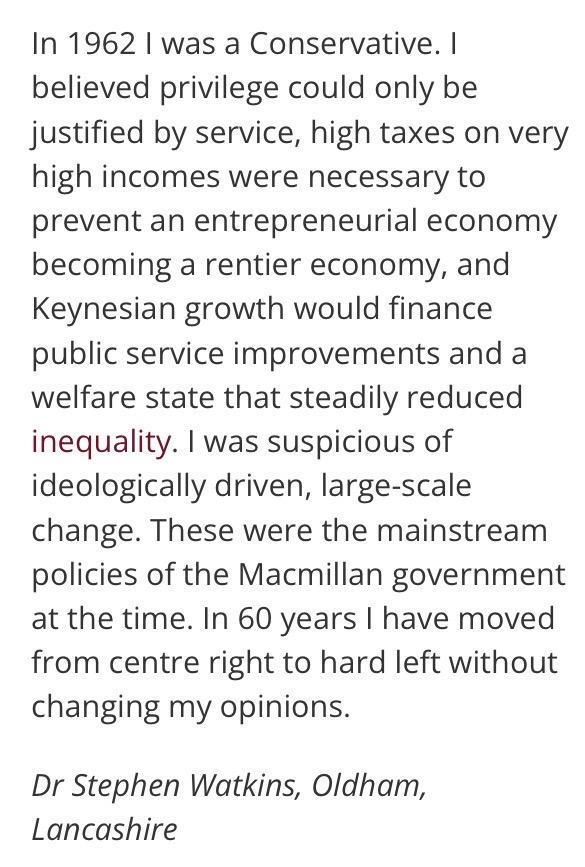@DanadasGrau @urlyman @RichardJMurphyThis was my reply on Richard's blog at the time:
Me too, in a way. I was active in the UK Labour Party in the 90s and very involved personally in the ‘New Labour’ project – actively opposing ‘Militant’ – and in many ways I haven’t changed – still believe in a mixed economy, etc…
But I too have found myself on the left – partly because the political centre has moved right, but also I have to admit that I have moved, principally because emerging awareness of climate-ecological breakdown has to my mind made it simply rational to advocate more fundamental. and faster change.
Political feelings in the 90s were dominated by the collapse of the planned economy models in Eastern Europe. For most of us, New Labour was not primarily about moving to the right – it was about moving away from Morrisonian nationalisation towards anti-capitalist but market-oriented solutions like social enterprise: if market economies really out-performed planned economies, then make the market work ‘for the many, not the few’ (as the New Labour Clause 4 revision actually said – a revision, I argued, and would still argue, that moved it not so much rightwards, but away from the old statism).
But the political context is now very different. Events like the 2008 crash have shown that capitalism doesn’t work any better than planned economies; the rise of China (by conventional economic standards) and analyses like those of Ha-Joon Chang have shown that radical government intervention actually works rather better than ‘free markets’, and moreover, our increasing understanding of impending climate-ecological breakdown makes controlling capitalism and rethinking economic growth essential.
